What's New
-
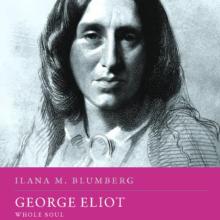
George Eliot: Whole Soul, Prof. Ilana Blumberg's book now out
The girl who would become George Eliot began her professional writing life with a poem bidding farewell to all books but the Bible. How did a young Christian poet become the great realist novelist whose commitment to religious freethinking made her so iconoclastic that she could not be buried in in Westminster Abbey?
In this new account of… -
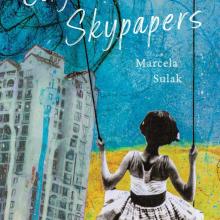
Prof. Sulak's "City of Skypapers" Finalist for National Jewish Book Award
Professor Marcela Sulak's latest book is a finalist for the 2021 National Jewish Book Award in Poetry.
Sarah Wetzel describes this work:
The title of Marcela Sulak’s fifth collection of poems, City of Skypapers, feels apt for its deliciously long lines hang suspended between the holy and the home, between the rituals that “elevate the loaf” and those of Shabbat that “…
-

Course: Neurolinguistics
How can we use brain imaging methods to test the validity of theoretical linguistic concepts? In this seminar we will examine the current understanding of language processing in the brain, particularly focusing on the compositional aspects of language.
-

New course: Morphology and Phonology of Non-integrated Words
Why is pizza feminine while hamburger is masculine in some languages? Why do speakers of different languages pronounce the French work croissant differently?
-

New course: A multimodal approach to linguistic analysis
This new seminar, taught by Dr. Rose Stamp, focuses on multimodal analysis of language data. Language is not limited to one modality, but to several. Central to multimodality studies is the study of the simultaneous deployment of resources in meaning-making including speech, gestures, eye gaze, mutual orientation of the bodies of the interlocutors, the material structure of the surround and…
-

Elective course: Bilingualism
In a world in which over half of the children are bilingual or multilingual, better understanding of the developmental, linguistic, and societal aspects of bilingualism in children, is of a great interest. Bilingual acquisition is studied across language pairs, from psycholinguistic and sociolinguistic perspectives.
-

New course: Grammars of Heritage Languages
Besides Hebrew and Arabic, between 40 to 50 different Heritage Languages (HLs) are spoken by 1st, 2nd, and 3rd generation immigrants in Israel. Are you a Heritage Language speaker?
-

New course: Semantic-Pragmatic Interfaces - The semantics and pragmatics of mirativity: The linguistic encoding of surprise
In this seminar we will examine the semantics and pragmatics of ‘mirativity’ – the linguistic encoding of surprise / expectation violation.
-
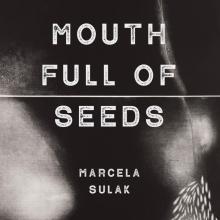
Faculty Publication: Mouth Full of Seeds
Professor Marcela Sulak has published a collection of poems, Mouth Full of Seeds, which Erika Meitner describes as:
. . . a fierce and tender hybrid memoir that is wholly unique to Sulak’s lived experiences as an academic, single mother, farmer’s daughter, translator, convert to Judaism, native of Texas, and immigrant to Israel. Weaving together lyric essays and poems, Sulak…
-
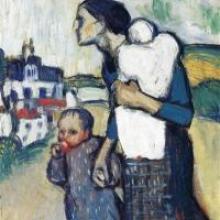
New Course: Femininity, Domesticity, and Literature
In an interview with the magazine Believer in 2014, the Irish poet, Eavan Boland remarked: “I was a woman in a house in the suburbs, married with two small children. It was a life lived by many women around me, but it was still not named in Irish poetry. I’ve often said, … that when I was young it was easier to have a political murder in a poem than a baby.”
In this new course…
-

New Course: American Immigrant Writing
Dr. Marcela Sulak is teaching a new course: “American Immigrant Writing." The course introduces students to American literature written from the end of the Civil War to the present that has been produced by immigrants. We discuss the concept of national literature, as well as the concept of nation as a narrated construct, identity politics, and individualism. We also consider the mechanisms…
-
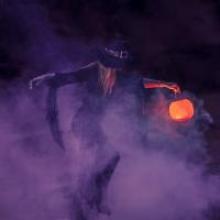
New Course: Shakespeare and Gender
This new course, taught by Dr. Esther Schupak, focuses on gendered power relations in Shakespeare's texts. Early feminist criticism often coalesced around the two binaries of viewing Shakespeare’s work as either proto-feminist or unredeemably misogynist, while later feminist work has tended to adopt the narrative of women’s oppression. The limitation of this narrative is not that it is…
-

New Course: Twentieth-Century British Literature
Taught by Dr. Karin Berkman, the course surveys developments in the novel, short story, and poetry across the twentieth century, examining the ways in which British literature responds to cataclysmic historical events. We begin by tracing the ways in which the novel provides a profound critique of the iniquities of British imperialism. We then turn to an examination of the poetry that emerges…
-
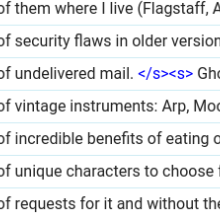
Hybrid Seminar: Quantitative Research in Syntax
Modern syntax often relies on data obtained from informal grammaticality judgments, meant to distinguish the sentences that our grammar allows us to generate from the ones that cannot be formed without violating principles of the grammar. However, grammaticality judgments may sometimes be unclear, gradient, or subject to considerable variation from speaker to speaker, and in such cases it has…
-

New Course: Hybrid Writing Workshop
Taught by Prof. Sulak, this creative writing workshop is a study of literary genres; what they do, how they work, how to write about them, and how to produce them. The course takes as its guiding principle the idea that genre distinctions are a question of degree, rather than category. The first Western medical texts, histories and narratives were written in verse form. In Greece, poetic…



